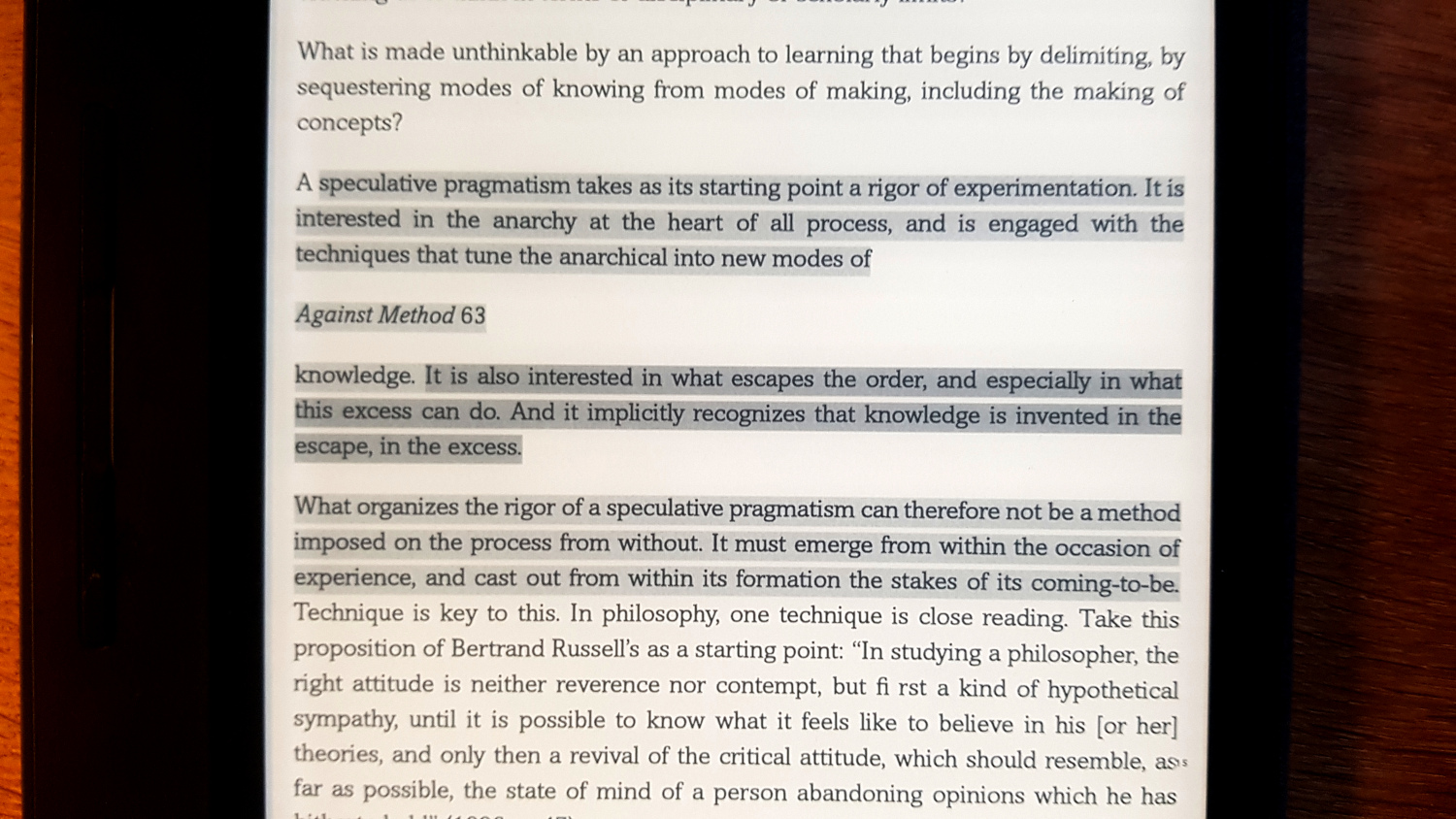
Ma bibliographie est maintenant à peu prés rangée, ordonnée. De belles listes d'ouvrages, bien cataloguées, bien triées. La question maintenant n'est plus "quoi lire ?" mais "comment lire ?". Il ne s'agit plus de gloutonner, c'est du sérieux, un doctorat : Il faut pouvoir garder une trace de chacune de ses lectures. Mais une trace de quoi, exactement ?
Un résumé objectif du contenu ? Un résumé subjectif du contenu ? Ce qui nous intéresse à la première lecture ? Les phrases et citations picorées ? Le format dans lequel il a été lu ? Le contexte, l'espace-temps dans lequel il a été lu ? L'expérience sensorielle ou l'expérience intellectuelle ? Est-ce un combat de (fausse) loyauté, sur des présupposés, des stéréotypes de lectures académiques ? Image d'épinal de belles fiches de lectures, stabilotées, concises et organisées consciencieusement dans des dossiers. "Juste" une question de méthodologie ?
Start with the abstract of an article, introduction to a chapter, or the contents list and first pages of a book. As you read, ask yourself wether the text seems relevant enough for you to invest time in reading more. If the answer is "yes", read the introduction and/or conclusion, asking yourself the same question. If the answer is still "yes", and the work seems readable, then carry on and read the rest. (...) Make notes of your thoughts as you read, including clear links to the text, e.g. by noting page numbers alongside your notes, so you can easily refer back later on if necessary
Helen Kara, Starting your PhD: What you need to know No More Publishing, 2015, p22.
It assumes that each book/paper has chapter, introduction, conclusion, so ?
I let Erin answer :
Method, here is aligned to a making reasonable of experience, fashioning knowledge as a static organization of preformed categorie (p.6)
A method stops potential on its way, cutting into the process before it has a chance to fully engage with the complex relationnal fields the process itself calls forth. (p8)
It's not that we must altogether refrain from organizing experience (...). It's that in the organizing of experience for academic study, we must become more attuned to how we are contributing to the creation of a new orthodoxies in relation to what we understand experience to do. (p8)
A speculative pragmatism takes as its starting point a rigor of experimentation. It is interested in the anarchy at the heart of all process, and is engaged with the techniques that tune the anarchical into new modes of knowledge. It is also interested in what escapes the order, and especially in what this excess can do. And it implicity recognizes that knowledge is invented in the escape, in the excess. What organized the rigor of speculative pragmatism can therefore not be a method imposed on the process from the without. It must emerge from within the occasion of experience, and cast out from within its formation the stakes of its coming-to-be. p14
Erin Manning, Against Method in Phillip Vanini
Non-Representational Methodologies: Re-Envisioning Research, Routledge, 2015.
